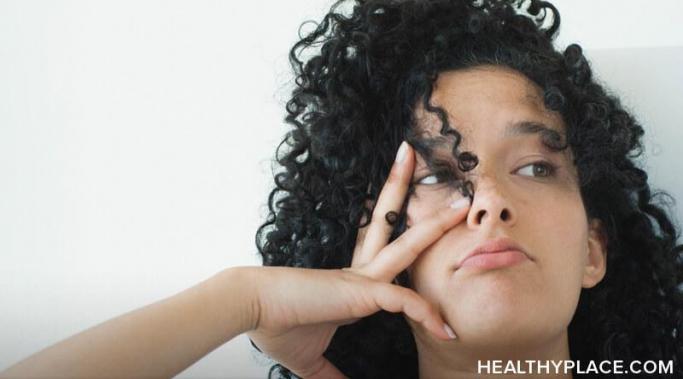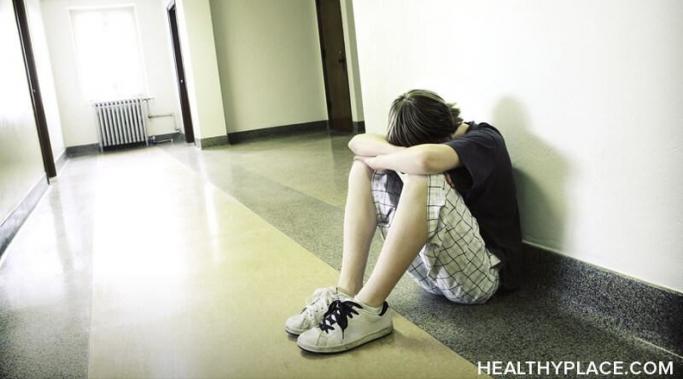Blogs
Are there any activities to build self-esteem? Yes, there are. In fact, the most common question I get asked about building self-esteem is where to start. Often, we can clearly picture the version of ourselves we desire to embody, yet we struggle to take the first few steps towards it. Self-esteem starts to feel like a massive undertaking, something we can see in the distance but never gets any closer. To help, here are a few fresh new activities to build self-esteem that have worked for several of my clients.
Talking to my sister helps my schizoaffective disorder so I'm grateful that several years ago, my sister Laura made the perfect request for a Christmas present—we would get together for a weekly phone call throughout the year. “No long lines waiting at the mall,” she said. She knows crowds exacerbate my schizoaffective disorder. But the weekly phone calls help my schizoaffective disorder in other ways too—in ways I couldn’t have predicted.
Gratitude and anxiety can seem like an unlikely combination. People living with any type of anxiety might be prone to see gratitude as a superficial trend and interpret reports that it reduces anxiety as pure nonsense. That skepticism makes a lot of sense. When you're worried about a loved one's health, for example, does thanking the person who coughed germs all over the room help your anxiety? Honestly, it probably would not. That, though, isn't what gratitude is all about. Gratitude and anxiety have a genuine connection, and the more you know about it, the more you'll find yourself less anxious and more grateful.
Is it really possible to soothe borderline personality disorder (BPD) with your senses? As an emotionally sensitive person and someone with a diagnosis of borderline personality disorder, it is easy for my emotions to run wild. Only last week was I doubled over sobbing during a panic attack following a small mistake that I had made. My therapist has taught me how to use the senses to ground myself during such moments of panic, and overwhelming shame and sadness. Let me share some of the techniques I use with you. Before I begin, however, I want to acknowledge that not every sense will be available to every person or may need to be used in an individualized way.
People might think I have my life together, and for the most part, I do. But even after years of recovery, I still struggle. My struggles and how I react to them are different now from when I was first diagnosed, but some days it is painfully clear that recovery is a lifelong battle.
If you’ve spent a lot of time online, you’ve probably seen the term “vaguebooking” thrown around; even if you haven’t, you’re probably familiar enough with the concept. Vaguebooking is, honestly, exactly what the word entails: posting vague or cryptic status updates to Facebook. Of course, the concept isn’t exclusive to Facebook and can be done on any social media platform.
For many of us who suffer from depression, there's one major character flaw we have to deal with, especially at work. I am talking about apathy, or in this case, work apathy. Here's how you can deal with it.
Posttraumatic stress disorder (PTSD) is a difficult disorder to carry throughout life, so you need to learn how to manage PTSD triggers. The symptoms of PTSD can be debilitating, and it's hard to predict when they're going to strike. Any sight, sound, smell, or conversation can cause an unwanted traumatic memory to pop up in your mind, disrupting your sense of peace. Learning to cope with PTSD starts with identifying the triggers that cause you distress. If you are able to predict what types of stimuli might cause you to get stuck in a traumatic memory, you will be better prepared to manage the PTSD triggers throughout your day.
My mental health condition affects the breakups I've experienced. A breakup, or the ending of any relationship, can be one of the most devastating events that anyone may have to face in their life. As someone who used to describe myself as a serial monogamist, I sure have had my fair share of heartbreak. I understand that no one enjoys getting broken up with; however, I have noticed that breakups hit me harder than most. I have always been someone who feels extraordinarily deeply, both the good and the bad. This ability to feel deeply, combined with my mental health conditions, has affected how I experience breakups in a myriad of ways.
How can you change anxiety, bit by bit? Would you believe me if I told you that math can provide phenomenal motivation? Hear me out.









